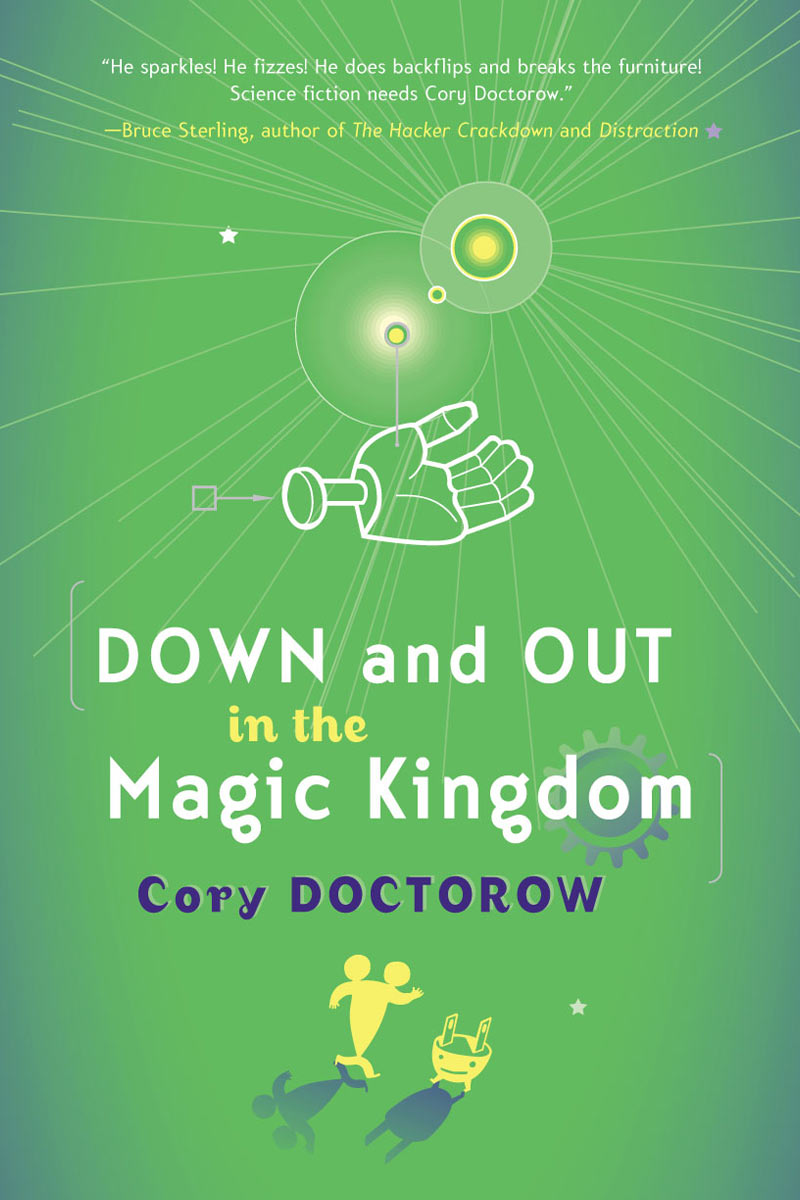Tim Bennett has done a fantastic text remix of Down and Out. He says, “The text was generated by separating the novel’s sentences onto separate lines. Then I sorted them alphabetically from the last letter, to the first, so that sentences would cluster in roughly rhyming groups. From that process I refined the rhymes and constructed a short narrative.”
The sun was warm on my skin, and the flowers were in bloom
I woke disoriented and crabby, without my customary morning jolt of endorphin
I lurched out of the bed, naked, and thumped to the bathroom
I nearly started crying right thenI foraged a slice of bread with cheese and noticed a crumby plate in the sink
Lil shot me a look – she looked ready to wring my neck
She set her mug down with a harder-than-necessary clunk
I was an emotional wreckI was hyperventilating, light-headed
“Lil,” I said, then stopped
I hated how pathetic I sounded
Lil folded her arms and glaredI threw my glass at the wall
She went nuts
Now I wanted to hit something besides the wall
I looked inside myself, and I saw that I didn’t have the guts





























